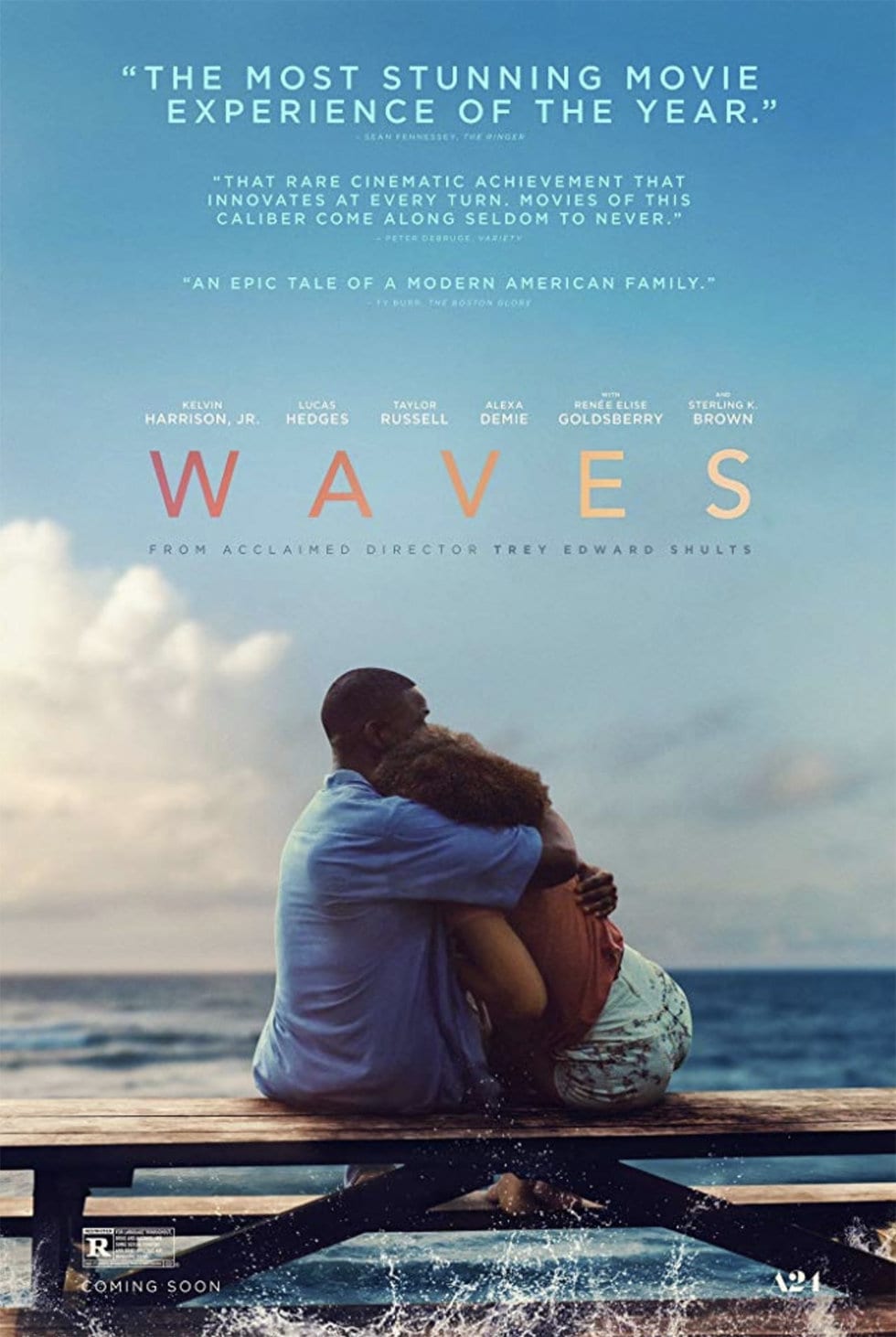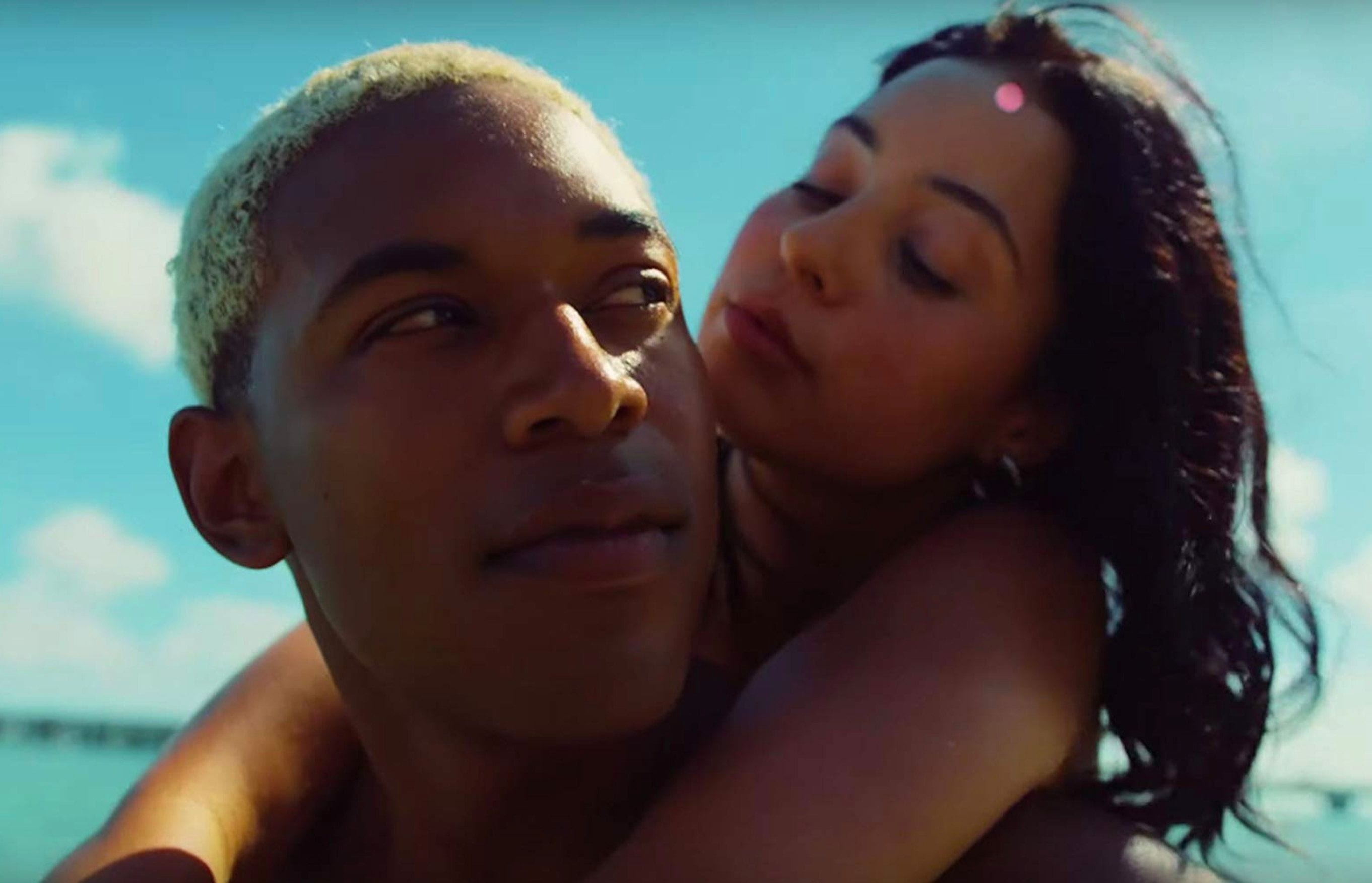
Waves is an emotional whirlpool of a family drama, swirling around a single, shocking moment in the middle of the movie that is as soul-crushing as anything you’ll see at the theater this year. Writer-director Trey Edward Shults doesn’t shy away from rawness and realness when it comes to portraying heartache and tragedy on film, and his actors match his boldness.
The story follows Tyler (Kelvin Harrison, Jr.), a star high school athlete struggling to meet the high expectations of his loving but domineering father (Sterling K. Brown). When the pressure gets to be too much to bear, he commits an unthinkable act of violence that devastates his family, including his sister Emily (Taylor Russell), who is forced to shoulder the weight of his actions both at school and at home.
PopMatters sat with Shults, Russell, and Harrison to discuss the film’s uncompromising nature, the profound effect it’s had on audiences, the unspoken aspects of the human experience, and more.
Film Strip by joseph_alban (Pixabay License / Pixabay)
How have people been reacting to the film so far? It shook me up pretty bad.
Kelvin Harrison, Jr.: People have said after the movie that they want to go home and give their son a hug, or call their mom or dad. Kids who see it feel seen and represented, and that’s really cool. At Telluride, a lady ran up and gave Taylor a hug.
Taylor Russell: She was like, “This is my life. This is my relationship with my family.” I don’t know if you can watch this movie without being affected. It’s truly humbling to be part of something that’s moved people so much.
Trey Edward Shultz: It’s an unorthodox movie in a lot of ways. There are a lot of chances for people to get off-board with it. And not everyone will stay on board until the end or be moved. But it’s humbling that there are people who are affected by it.
A lot of my favorite movies are uncompromising. That is to say, they’re not for everybody. Did you know that you were making a movie that would be too difficult for some people to watch?
Shultz: We never talked about it in those terms, but yeah. The way we’d talk about it is that we were being as honest as we could with the characters and the story.
Russell: Mostly we just talked about what the story is about. It’s a profound healing after an unthinkable tragedy with somebody whom you would never expect to commit such an act. It’s based on parental pressures and expectations that are unmanageable. That is so relatable and isn’t exclusive to a certain race. These roles just don’t happen for me. They’re not written for young, mixed, black girls.
Kelvin Harrison, Jr. as Tyler and Alexa Demie as Alexis (©A24 Films) (IMDB)
Some of the scenes are extremely intense, especially the ones you two share with Sterling.
Harrison: Everything is very intense in the first act. There is a safety net there because Trey is great, but we tap into a piece of ourselves, a piece of our families, a piece of our lives that we never really have to, normally. We move forward.
But when you’re making a movie like this, you need to heal in the process. You’re in the scene with Sterling and you start to realize your own feelings about your dad. It’s heavy. It’s hard.
A lot of the most powerful scenes don’t involve dialogue at all. The camera stays on Kelvin or Taylor’s face for longer than you might see in most films.
Shultz: There’s so much that’s unsaid about the human experience in the subtext of watching a face. I want the emotions of the characters to be felt by the audience. That obviously wouldn’t happen without amazing actors.
Harrison: For me, a lot of it is in the script. You can feel the subtext. We talked every day, to the point where Trey probably didn’t want to answer my calls. [laughs] We’d talk about every single line, every single beat, every single pull at the kids. I always knew what Tyler was thinking.
When you constantly live in that space, tons of things will run through your mind, and you just have to let it be.
Russell: I agree with that. It’s all in the research you do beforehand and what the character calls for. There are so many moments of awkwardness in the second half of the movie. She [Emily] doesn’t really trust anybody, she has a lot of shame, and she wants to save the world from herself. She doesn’t want to make people uncomfortable from just being around her.
On set in certain movies, you feel this pressure that’s palpable. You’re worried about the schedule of the day and what’s happening next.
With Trey, I felt like I had forever to feel whatever the fuck I was feeling, with no necessity to move on to the next emotion. I didn’t feel like I had to be anything that I didn’t want to be. Trey wouldn’t be like, “You need to try to cry here. You have to move on to that next emotion faster.” It felt easy.
When you’re given the space, the amount of creativity that comes is…that’s what you want.
Harrison: There’s a lot of trust involved. With Trey, I could literally come onto set and do whatever my version of the scene is supposed to be. There was so much trust, and that never happens.
Cinematic storytelling devices are sort of undetectable when they’re done well. You almost don’t notice them. When the big tragedy hits in the middle of Waves, the aspect ratio changes from 16:9 to 4:3, and the change didn’t occur to me until long after it had happened.
It could have been quite distracting, but it wasn’t. How did you make the switch feel organic?
Shultz: It’s meant to immerse you and bring you closer into these kids’ heads, but it could easily backfire and take you out of it. It was very specifically designed. It was in the script where we change aspect ratios and how we change. We wanted to utilize it so that it made sense at that point in the journey.
As an actor what was it like going toe-to-toe with Sterling Brown?
Harrison: I had to boss up. [laughs] I have so much respect for Sterling. I had to prove to him that I was with the shits. I had to mature and stand up to him so that he would be sure he could trust me.
We fell into this father-son thing, but we’d also try to step on each other’s toes a little bit. That was the dynamic.




